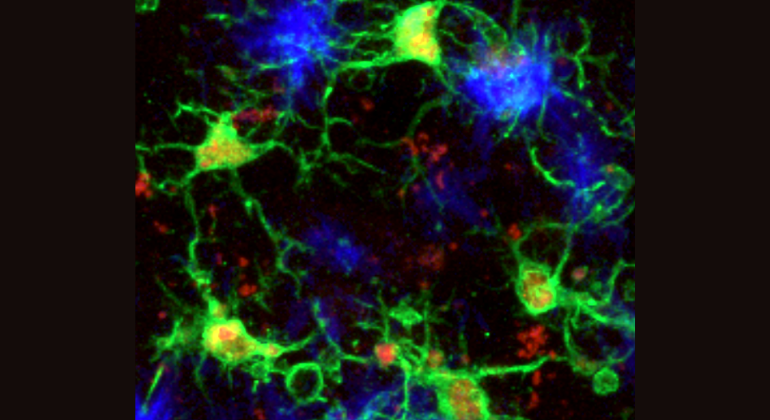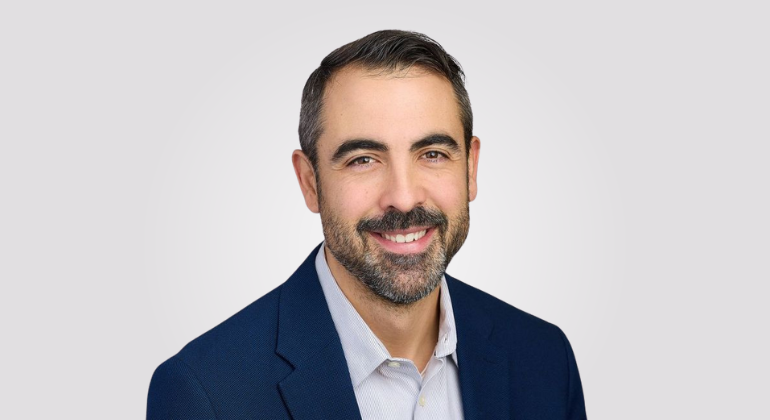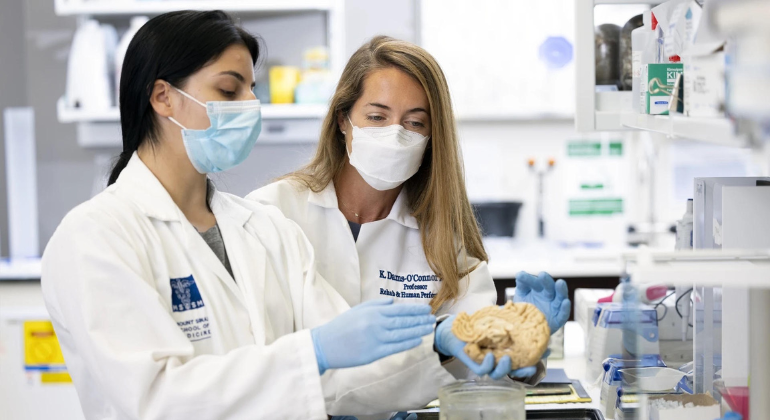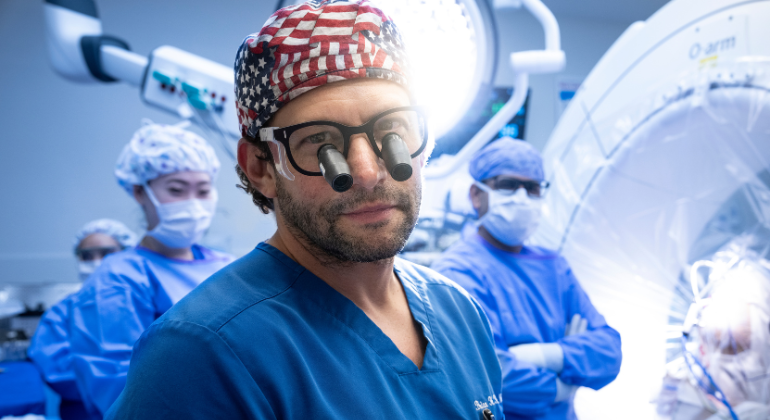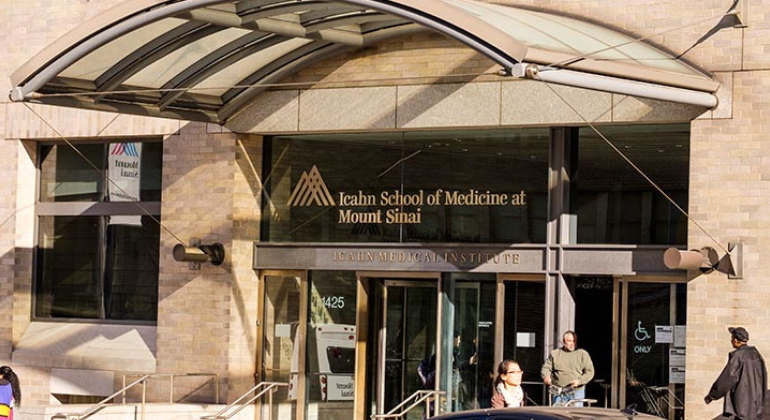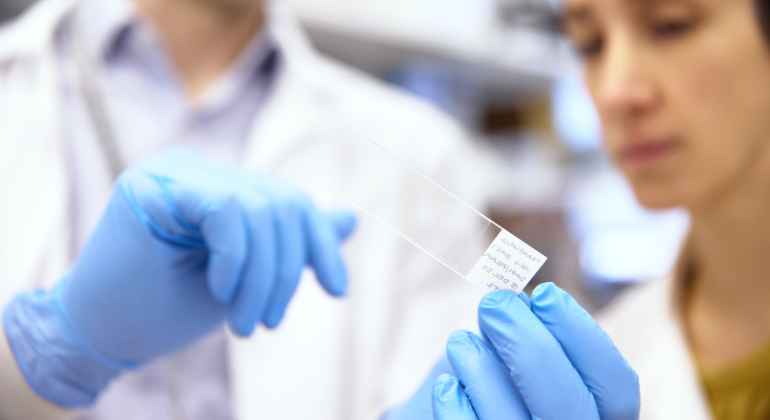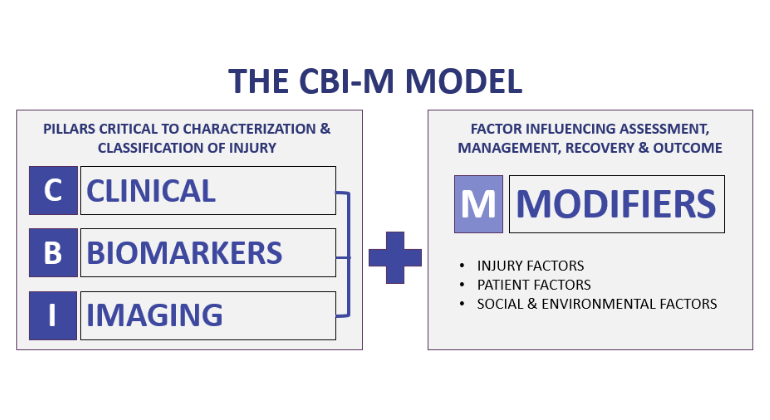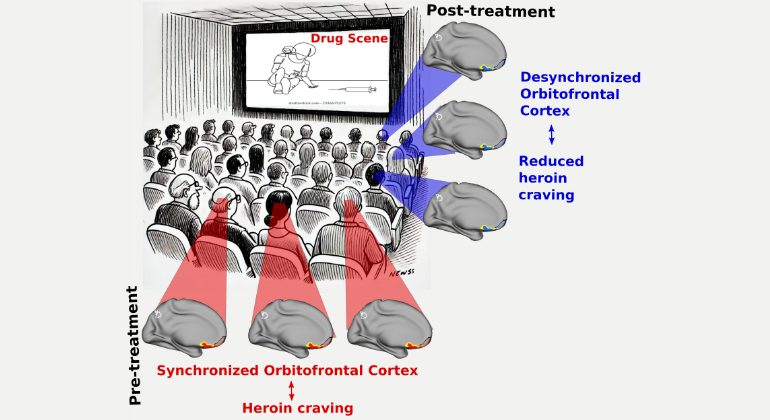Mount Sinai Researchers First to Develop Age Prediction Model on Human Brain Tissue Using Artificial Intelligence
New method measures age acceleration, opening doors to unlocking genetic and environmental risk for cognitive disorders and Alzheimer’s
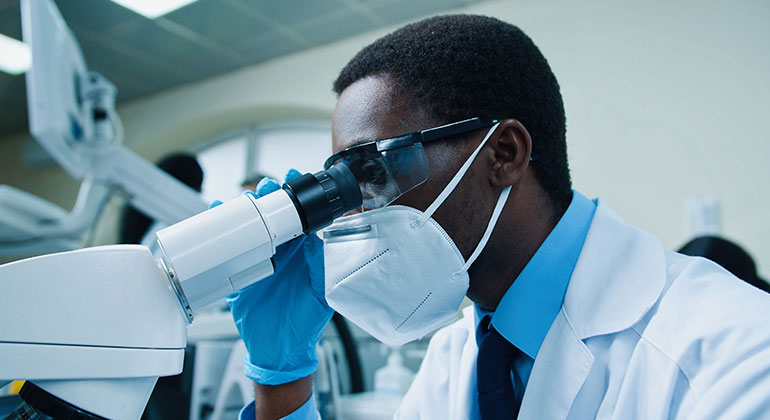
Paper Title: Histopathologic Brain Age Estimation via Multiple Instance Learning
Journal: Acta Neuropathologica, October 10, 2023
Authors: John F. Crary, MD, PhD, Professor of Pathology, Molecular and Cell-Based Medicine, Neuroscience, and Artificial Intelligence and Human Health at the Icahn School of Medicine at Mount Sinai; Kurt W. Farrell, PhD, Assistant Professor of Pathology, Molecular and Cell-Based Medicine, Neuroscience, and Artificial Intelligence and Human Health at Icahn Mount Sinai; Gabriel A. Marx, MD, MS, Resident in Neurology at Icahn Mount Sinai; and other coauthors.
Bottom Line: The aging brain undergoes structural and cellular changes that can impact function and increase susceptibility to neurodegenerative disorders like Alzheimer’s disease. Age acceleration—or the differences between biological and chronological age—in the brain can reveal insights about mechanisms and normal functions of one of the body’s most important organs. It can also explain age-related changes and functional decline, as well as identify early changes related to diseases, indicating the onset of a brain disorder.
Mount Sinai researchers say they have, for the first time ever, used AI to develop an algorithm they term “HistoAge” which predicts age at death based on the cellular composition of human brain tissue specimens with an average accuracy of within 5.45 years. This powerful tool can also identify neuroanatomical regions vulnerable to age-related changes, an indicator of potential cognitive diseases.
How: The researchers examined a collection of almost 700 digitized images of slides with human hippocampal sections from aged brain donors to develop the histological brain age estimation algorithm. The hippocampus is known to be involved in both brain aging and age-dependent neurodegenerative diseases, and thus is an ideal region for this analysis. The team then trained a machine learning model to estimate a person’s age at death based solely on the digitized section, a task that is impossible for a human observer to perform with any degree of accuracy. They used the difference between the model-predicted age and actual age to derive the amount of age acceleration in the brain.
Results: When compared with current measures of age acceleration (e.g., DNA methylation), they found that HistoAge-based age acceleration had stronger associations with cognitive impairment, cerebrovascular disease, and the levels of Alzheimer’s-type abnormal degenerative protein aggregation. The study found that the HistoAge model is a reliable, independent metric for determining brain age and understanding factors that drive neurodegeneration over time.
Why the Research Is Interesting: The researchers said the HistoAge model, and other subsequent similar algorithms, represent an entirely new paradigm for assessing aging and neurodegeneration in human samples and can easily be deployed at scale in clinical and translational research laboratories. Further, this approach provides more rigorous, unbiased and robust metrics of cellular changes underlying degenerative diseases. The team will next build a multicenter collaboration to develop a large AI-ready dataset that will be used to develop even more powerful AI models that have the potential to transform and enhance our understanding of brain diseases.
Said Mount Sinai's Dr. Crary of the research:
"AI's disruptive influence on brain research is a paradigm shift propelling us towards the next generation of cures. The HistoAge model will enable us to uncover crucial causal aspects of debilitating brain diseases such as Alzheimer’s disease."
Said Mount Sinai's Dr. Farrell of the research:
Using the latest computational approaches, like AI, on human tissue samples from Mount Sinai's vast and diverse collections is a shift in the way we assess human diseases. Our novel HistoAge model is just one example of the way AI is paving the way for further discovery about the mechanisms of aging and neurodegeneration. Clinical scientists are increasingly using AI in research and diagnostic settings. It’s a tool that is revolutionizing medicine and we are excited to be leaders in this space, optimizing machine learning—not to replace our Health System’s commitment to compassionate care, but to improve diagnosis and treatment for all patients.
Said Mount Sinai's Dr. Marx of the research:
This model opens the floodgates for a slew of fascinating and essential analyses that bring us closer to finally understanding the aging brain and age-related brain diseases such as Alzheimer's. This is the first time we have been able to put a number to how much aging there is in the brain in pathology. With this approach, we can discover genes that protect against brain aging or genes that make aging worse in the brain, as well as discover the environmental risk factors that make individuals' brains age faster.
The study was supported by funding from the National Institutes of Health (R01AG054008, R01NS095252, R01AG060961, R01NS086736, P30AG066514, P50AG005138, R01AG062348, U24MH100931, and K01AG070326), Alzheimer’s Disease Research Center (P30 AG066514), the Winspear Family Center for Research on the Neuropathology of Alzheimer Disease, Rainwater Charitable Foundation / Tau Consortium, and a generous gift from Stuart Katz and Jane Martin. Researchers from the University of Pennsylvania and Boston University contributed to this study.
To request a copy of the paper, or to schedule an interview with the researchers, please contact the Mount Sinai Press Office at stacy.anderson@mountsinai.org or 347-346-3390.
About the Mount Sinai Health System
Mount Sinai Health System is one of the largest academic medical systems in the New York metro area, with 48,000 employees working across seven hospitals, more than 400 outpatient practices, more than 600 research and clinical labs, a school of nursing, and a leading school of medicine and graduate education. Mount Sinai advances health for all people, everywhere, by taking on the most complex health care challenges of our time—discovering and applying new scientific learning and knowledge; developing safer, more effective treatments; educating the next generation of medical leaders and innovators; and supporting local communities by delivering high-quality care to all who need it.
Through the integration of its hospitals, labs, and schools, Mount Sinai offers comprehensive health care solutions from birth through geriatrics, leveraging innovative approaches such as artificial intelligence and informatics while keeping patients’ medical and emotional needs at the center of all treatment. The Health System includes approximately 9,000 primary and specialty care physicians and 10 free-standing joint-venture centers throughout the five boroughs of New York City, Westchester, Long Island, and Florida. Hospitals within the System are consistently ranked by Newsweek’s® “The World’s Best Smart Hospitals, Best in State Hospitals, World Best Hospitals and Best Specialty Hospitals” and by U.S. News & World Report's® “Best Hospitals” and “Best Children’s Hospitals.” The Mount Sinai Hospital is on the U.S. News & World Report® “Best Hospitals” Honor Roll for 2025-2026.
For more information, visit https://www.mountsinai.org or find Mount Sinai on Facebook, Instagram, LinkedIn, X, and YouTube.
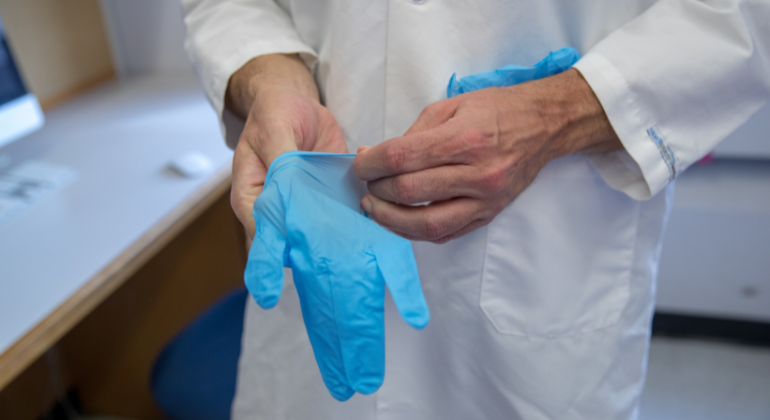
The New England Journal of Medicine Shines Spotlight on Forensic Pathology
Jul 03, 2025 View All Press Releases